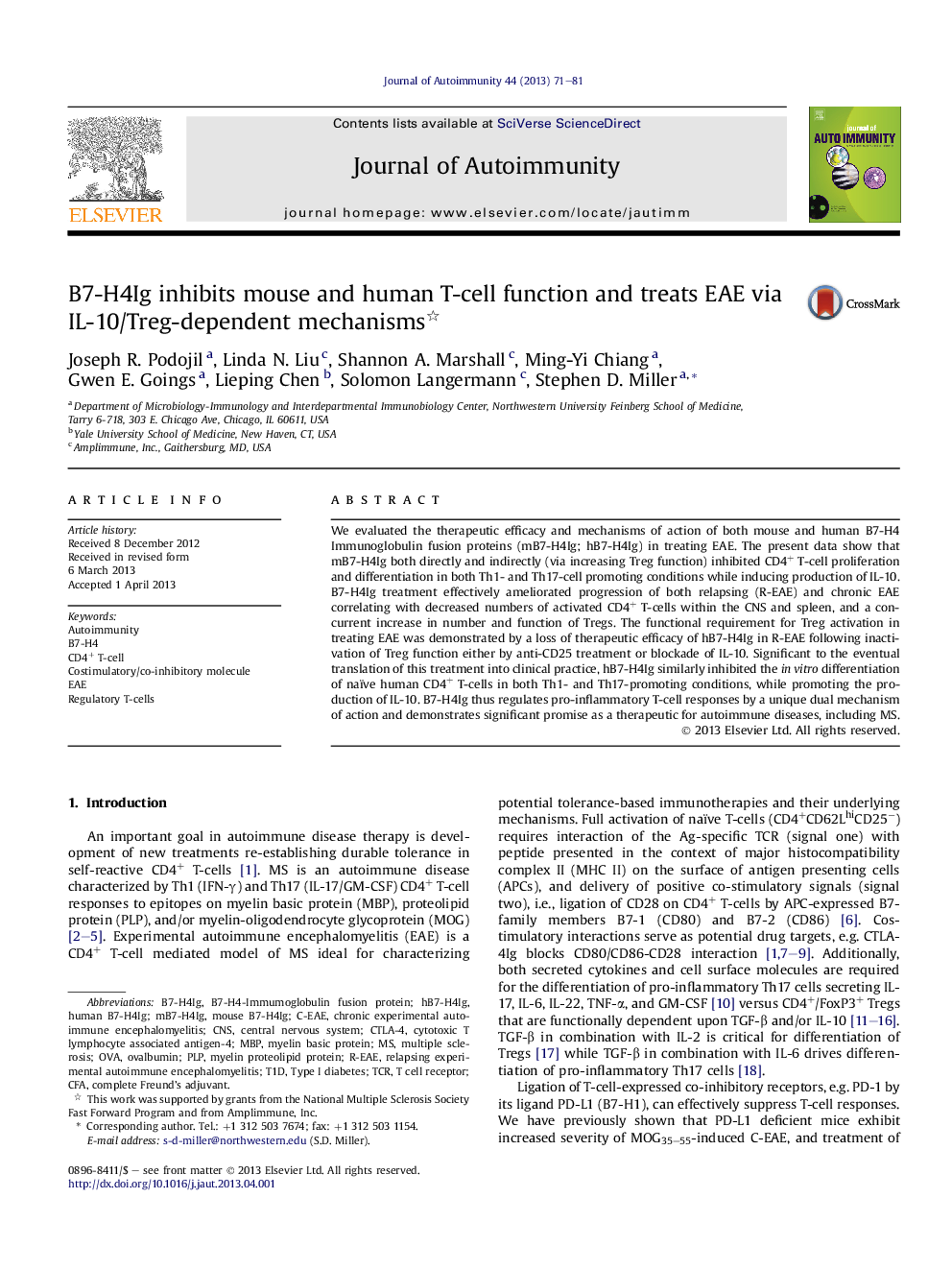| Article ID | Journal | Published Year | Pages | File Type |
|---|---|---|---|---|
| 6119338 | Journal of Autoimmunity | 2013 | 11 Pages |
Abstract
We evaluated the therapeutic efficacy and mechanisms of action of both mouse and human B7-H4 Immunoglobulin fusion proteins (mB7-H4Ig; hB7-H4Ig) in treating EAE. The present data show that mB7-H4Ig both directly and indirectly (via increasing Treg function) inhibited CD4+ T-cell proliferation and differentiation in both Th1- and Th17-cell promoting conditions while inducing production of IL-10. B7-H4Ig treatment effectively ameliorated progression of both relapsing (R-EAE) and chronic EAE correlating with decreased numbers of activated CD4+ T-cells within the CNS and spleen, and a concurrent increase in number and function of Tregs. The functional requirement for Treg activation in treating EAE was demonstrated by a loss of therapeutic efficacy of hB7-H4Ig in R-EAE following inactivation of Treg function either by anti-CD25 treatment or blockade of IL-10. Significant to the eventual translation of this treatment into clinical practice, hB7-H4Ig similarly inhibited the in vitro differentiation of naïve human CD4+ T-cells in both Th1- and Th17-promoting conditions, while promoting the production of IL-10. B7-H4Ig thus regulates pro-inflammatory T-cell responses by a unique dual mechanism of action and demonstrates significant promise as a therapeutic for autoimmune diseases, including MS.
Keywords
Related Topics
Life Sciences
Immunology and Microbiology
Immunology
Authors
Joseph R. Podojil, Linda N. Liu, Shannon A. Marshall, Ming-Yi Chiang, Gwen E. Goings, Lieping Chen, Solomon Langermann, Stephen D. Miller,
